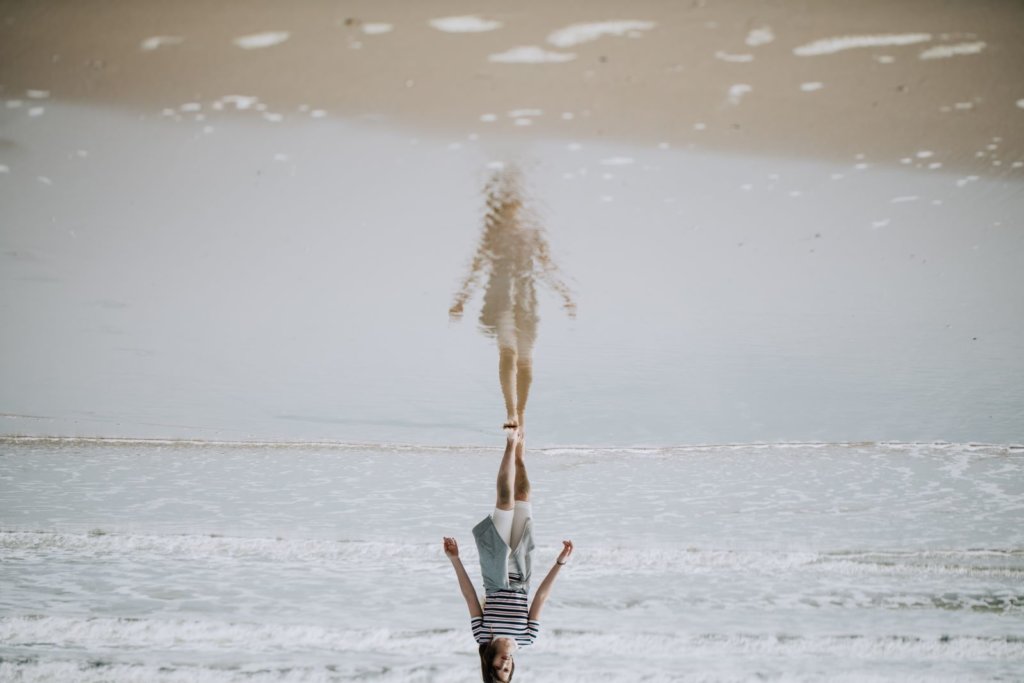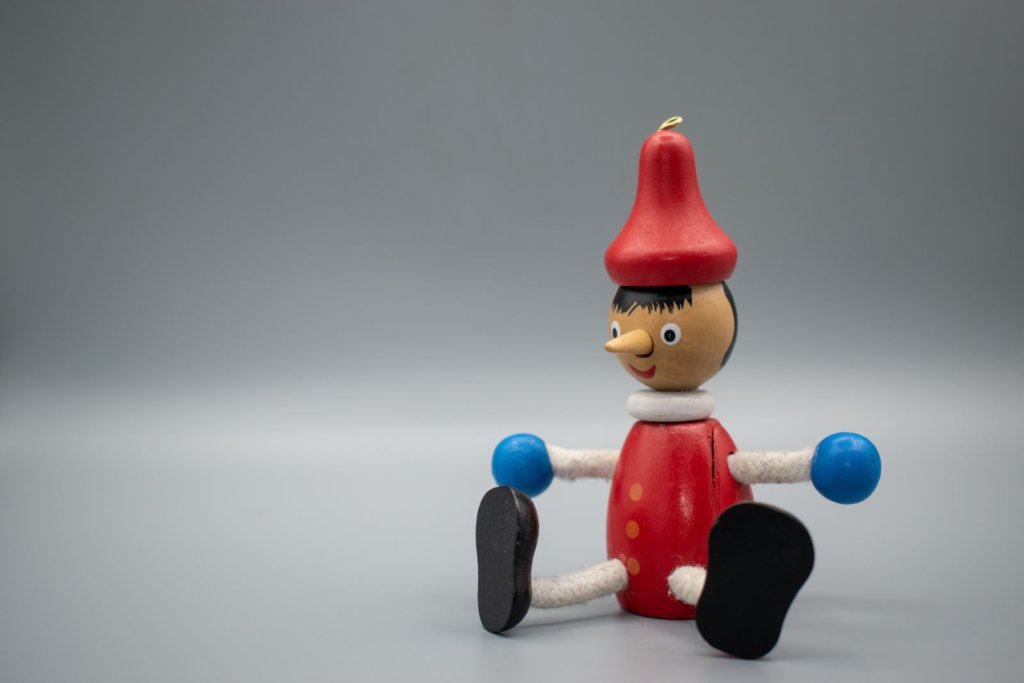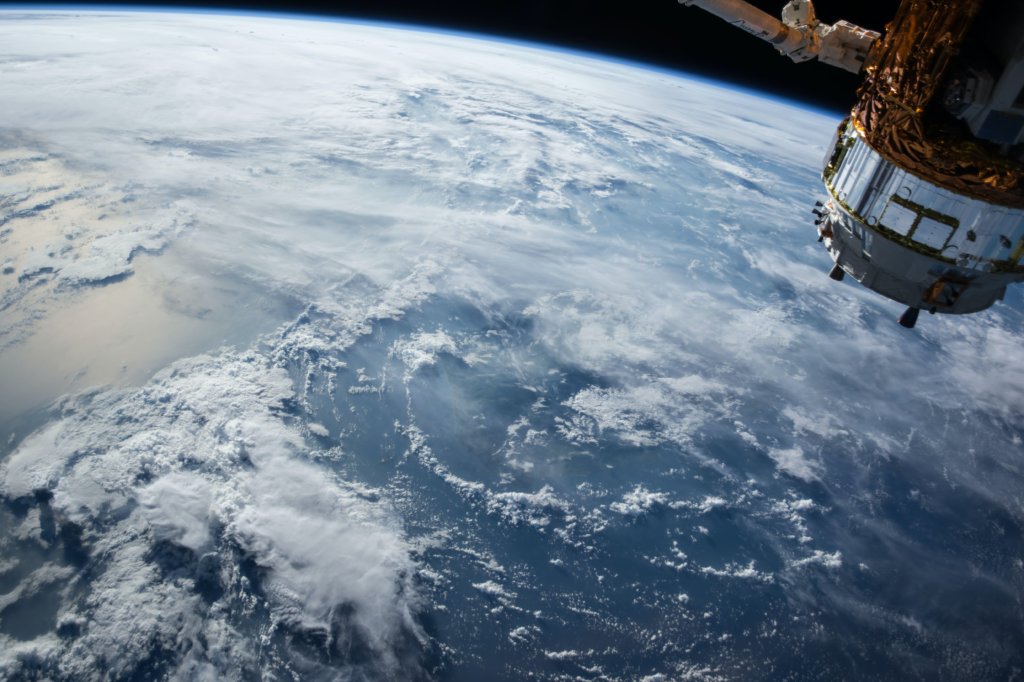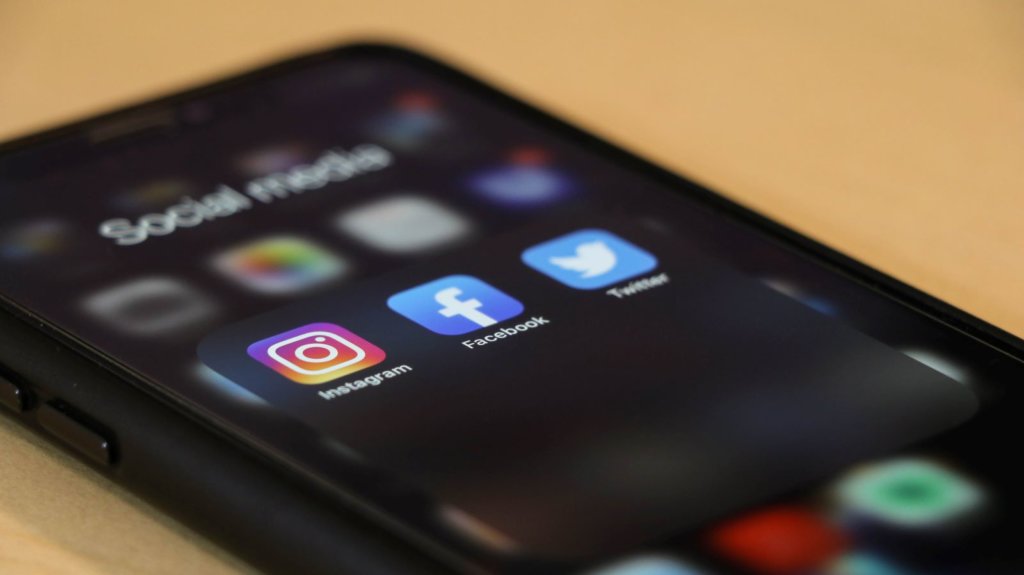I keep thinking about fantasy, delusion, and reality. A spiritual teacher I like was convinced Kamala Harris would become the next president. When Trump won on election night, she said, “Kamala won’t concede! She’ll ask that the election be investigated!” When that didn’t happen, this teacher said, “The election won’t be certified!” And then when that didn’t happen, she said, “Just wait until late April or early May. This election isn’t over! It’s all about to end!”
What interests me is not the content – people believe wacky things all the time – it’s that she kept saying her intuition told her all of this was true. And not only her intuition, but intuitive tools like tarot cards and signs. All of her tarot cards said more would be revealed. And she received sign after sign, things like walking around town and seeing t-shirts and bumper stickers that said, “The End,” which she interpreted to mean Trump’s reign was about to come to an end.
Yet here we are in mid-May and Donald Trump is still president. So what gives? How could her intuition be so wrong? Especially when she received external signs? It’s not like you can make that sort of thing up. Here’s the thing: An incredibly painful lesson I’ve had to learn over and over again is that signs are literal. People read into them, adding in their own layers, but usually, the universe will answer the question you ask.
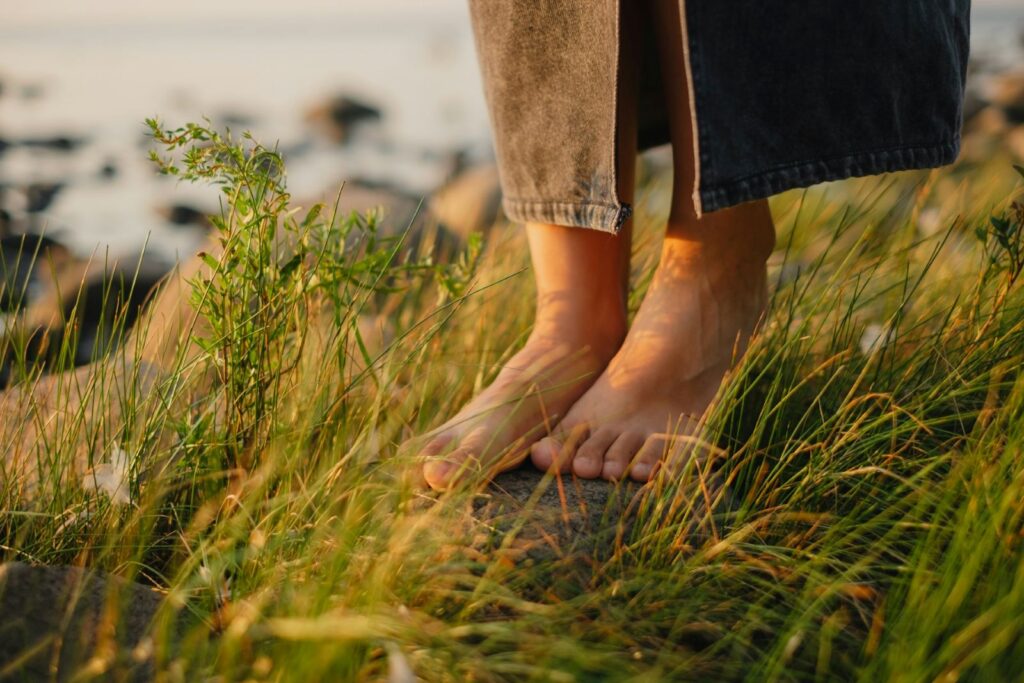
Let yourself ground in reality, not fantasy. Photo by Stas Ostrikov on Unsplash
Here’s a perfect example from my own life: When I was in my early-20s, I was completely enamored with an avoidant man. I didn’t know he was avoidant because I didn’t learn that term until later, but what I did know is we had a strong connection, yet he ran away from it. He was hot and cold, giving me mixed signals, and it made my head spin. Was this something worth pursuing or not? So I asked the universe. I said, “Who is my soulmate?” and literally in that moment, a truck drove by with just this man’s initials spray-painted across the side in giant letters. It seemed pretty clear to me. He was my soulmate! We would get married and live happily ever after!
Spoiler alert: We didn’t. I thought “soulmate” meant romantic partner but it doesn’t. A soulmate is someone who you have a deep connection with and often impacts your life in a profound way. This could be a friend, a boss, or even a pet. And this man? He absolutely changed the trajectory of my life. It was because of him that I pursued healing and immersed myself in the world of mental health, so much so that I’m a ghostwriter for therapists. I became a different person as a result of our connection. Was he my soulmate? Yes. Was he my “sitting in rocking chairs growing old together partner?” No.
That’s the thing about signs and intuition – we receive information but the interpretation is likely skewed based on our desires, biases, and more. This is also why using our brains is so important. My spiritual teacher says, “The highest treasure of human beings, distinct from other creatures, is their intellectual superiority. Had there been no intelligence in humans, they would hardly be different from other animals.”
He encourages everyone to practice discernment. To use their brains as well as their intuition. Like if your intuition says Elon Musk used his internet provider Starlink to steal the 2024 election for President-elect Donald Trump, to check whether voting equipment is even connected to the internet (it isn’t). Or if your intuition says to buy a car and then you take it to two mechanics and they say the car is a lemon, trust them.
I know it can be excruciatingly painful when your intuition doesn’t match reality. I don’t want to minimize that because these experiences of learning I misinterpreted my intuition have been the most heart-wrenching of my life. And at the same time, reality is reality. I’d much rather be grounded in reality than live in some fantasy land that never comes true. I’ve been in fantasy plenty of times and it only ever ends in disappointment and heartbreak, which is much worse than seeing things as they really are.
I dream of a world where we understand that interpreting our intuition is an art, not a science. A world where we recognize that the universe is very literal and oftentimes we’re the ones that add in layers and meaning to the signs and messages we receive. A world where instead of relying solely on intuition, we also use logic and reason. A world where we ground ourselves in reality because reality is where life happens.
Another world is not only possible, it’s probable.
I’ve written before about how Donald Trump represents our collective shadow in terms of racism and xenophobia, but he also represents the shadow side of the internet. His latest move withdrawing from the World Health Organization (WHO) is like unfriending someone on Facebook because you don’t like what they’re saying.
First off, I want to say I think the “unfriend,” “block,” and “mute” features on social media are important and necessary because no one should be subjected to abuse, but also there can be an element of using those features to create confirmation bias or insularity. These days you don’t have to listen to anyone who disagrees with you. You can ignore what other people say with relative ease. I notice this in my own life – whenever I post about Black Lives Matter on my professional Instagram account, I lose followers. That’s OK, I’ll keep posting about it, but it speaks to the shadow side of the internet.
We get to intentionally create our reality, our communities, and connect with like-minded individuals, which is great! But it can also lead to a disconnect from reality. If I only surround myself with people who think the Earth is flat, of course that will be what I believe. The statistics vary, but anywhere from 2% to more than 20% of people believe the Earth is flat! Even if it’s 2%, that’s a huge swathe of people. The notion continues to gain momentum because it has support from numerous Facebook groups and Youtube channels. The way we human beings determine what’s real is by consensus, by checking in with others. “Did you see that UFO zipping across the sky? No? Well I must have imagined it then.”
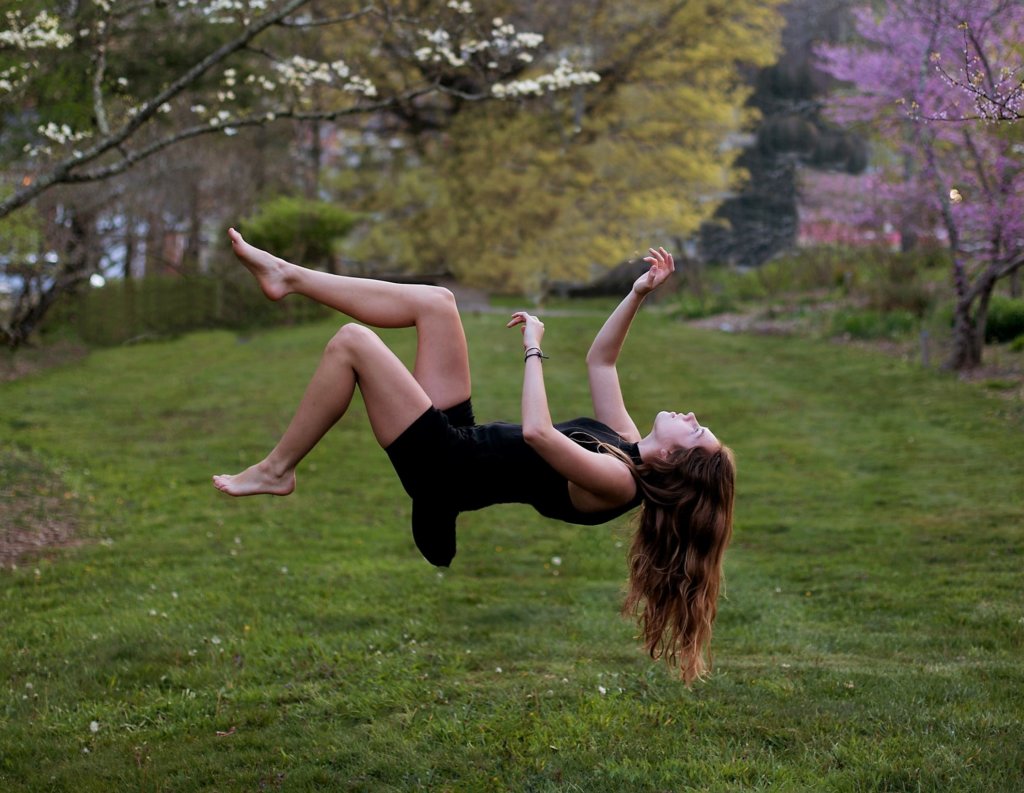
Is she actually floating?!? Photo by Ashley Bean on Unsplash
Because of the internet, we can find people who support our version of reality and that’s what Donald Trump does. How ironic that a “reality” TV star has no sense of consensus reality. He’s so used to creating the truth and now he gets to broadcast his reality to the world. He speaks to the seductive idea that the truth can be whatever you want it to be. It can feel empowering to say, “My truth is my truth” and ignore what other people say, especially if a person has experience with not being heard or believed. However, I’m going to quote Stephen Dinan, CEO and founder of The Shift Network, an alternative media company. He writes:
“The good aspect of claiming our own internal truth and authority – which human potential teachings typically promote – turns ugly and becomes a descent into ignorance when people stop respecting the hard-earned disciplines behind so many mainstream endeavors from science to journalism to medicine. Once we stop respecting expertise and the disciplines that inform that expertise, we put ourselves on a path to ignorance.
Precisely. When we tune out all other voices, we become ignorant. It’s what Donald Trump is advocating by withdrawing from the WHO. It’s what he’s advocating when he says people should stop getting tested for COVID-19. Because if you stop getting tested that means you don’t actually have the virus, right? Well, no. It just means that you can pretend everything is fine and delude yourself.
I can tie this in to my spiritual practice because on the one hand, my spiritual teacher advocates for self-realization, for developing intuition and connection to spirit so the internal reality is important. But on the other hand, he also urges us to have discernment, to use our brains when we’re in the world and reject what is irrational. In fact, he says, “Even if a young boy says something logical, it should be accepted. And if the Supreme Creator Brahma says something illogical, it should be rejected as rubbish.”
I dream of a world where we use our brains. A world where we understand our own version of reality is not the only version. A world where we realize it’s important to look at multiple perspectives and take into account what other people are saying. A world where we accept what is logical and reject what is not.
Another world is not only possible, it’s probable.
The adjective I’d use to describe life right now is “surreal,” both on a personal level and a societal level. I’m still grappling with the death of my colleague, it seems strange he no longer exists on this earthly plane, and in addition, I’m reintegrating into normal life after having gone on vacation. I have a giant blue poncho that says, “I <3 Denmark” on the back of it, and yet, the entire experience feels like a dream. Did I really go there? Did I really see all the things I saw? I have the pictures to prove it, but somehow that doesn’t seem adequate right now. As a bit of a disclaimer, I’m sick so my rational brain is offline, giving everything a dreamy quality.
Even if everything wasn’t dreamy though, even if my brain was operating normally, some things I’d still classify as surreal. Our political situation, for instance. Regularly there’s a news story surfacing worthy of the Onion, a satirical publication, but instead the story is legitimate. How is this real life? Furthermore, what is real life?
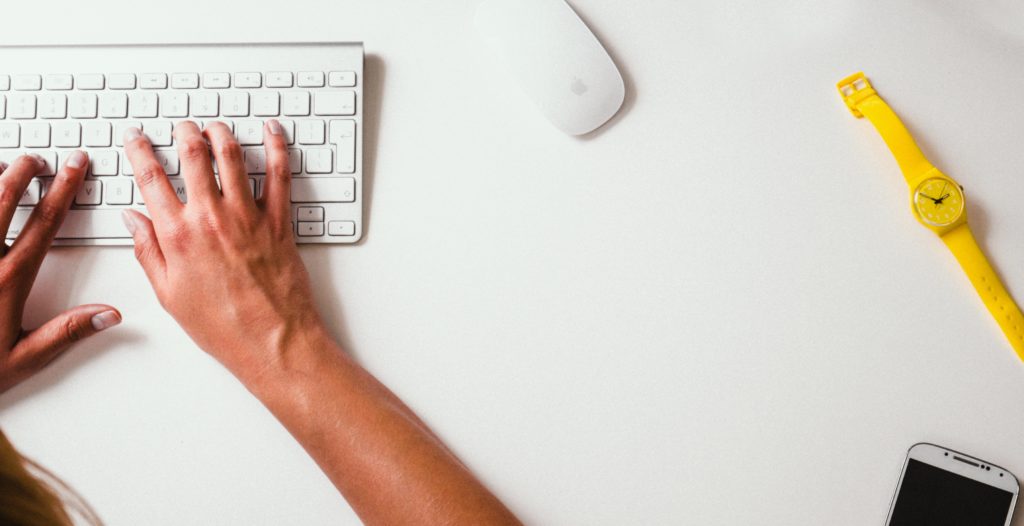
Eventually this, too, will stop being “real.” Photo by Damian Zaleski on Unsplash.
I’m not a philosopher, but the question has me curious. Some people say the entire world is an illusion, or máyá. Are they right? In short, no. Is my cough an illusion? Is the chair I’m sitting on fake? No. The world exists, it’s real, but also the world is a relative truth, according to my spiritual teacher.
“No worldly form remains unchanged for a long period of time,” he said. “The world always undergoes metamorphosis; this is how it maintains its existence – through evolution, through transformation.” That means what’s true today may not be true tomorrow. For instance, I’m sick today but I won’t be sick next month, I hope. My chair exists today, but 200 years from now it will not. It’s kind of a scary thing for me to contemplate, that we live in a world where everything is temporary and reality is changeable, but the evidence proves this over and over again. For instance, it wasn’t all that long ago that people thought germs were mythical.
Some people say reality is that which can be measured and proven scientifically, but as was once the case with germs, there are things in existence our instruments are not sensitive enough to measure yet. Does that make them any less real? As much as I’d like to define reality, I’m discovering I can’t because reality is always changing. I’m going to cop out here and circle back to my perennial topic: spirituality.
According to my spiritual treatise, the world is relative, but there is something absolute. There is something unchangeable and eternal, a solid foundation, a rock to which I may cling. There is an eternal, formless, unchangeable entity that pervades all of existence. It is to that entity, which exists both inside of me and outside of me, to whom I’m moving closer. It is to that entity I pay my salutations when I meditate. It is that entity who helps me unearth an absolute reality, which is something I wish for all of us.
I dream of a world where we remember the world is not an illusion, the world is real, but it’s constantly changing. A world where we let this fact fill us with hope because we realize that means things will never stay the same, and thus can always become better. A world where we live in our relative reality while also working toward that which is absolute.
Another world is not only possible, it’s probable.
I've been accused on more than one occasion, and by more than one person, of "living in Dreamsville," aka, Fantasy Land, aka never gonna happen. I understand why people say this to me — because I dream big, because I ask for a lot, and because what I desire so often doesn't match what other people think is possible. Here's the thing though, what I want is absolutely possible, and in fact, comes true.
If you've been reading "Another World is Probable" for a while, you know I've been a gypsy without a caravan for about a year and a half. I've moved apartments, cities, and coasts. I haven't stayed in any one place for longer than four months since January of 2012. Last Monday I realized my dreams have changed and I no longer want to live in the city. Instead, I want to live where I can see trees outside my window, by myself, in a quiet place, but still close to things — shops, public transportation, etc. The kicker is I need to be able to afford it working part time in the most expensive area in the country. This dream was often scoffed at because it sounds unrealistic (understandably).

I imagine Dreamsville looks like something out of “The Lorax.”
Well, on Thursday, I signed a lease on a place and it's all those things and more. I'll be living in a cottage by myself, within my price range, at a gated community, near public transportation, where I can see trees outside my window. When I walked into the cottage I cried. I cried because the place felt like home but also because I was overwhelmed at seeing my dream come to life. I was overwhelmed at how the universe orchestrated to meet all my needs and more. I was overwhelmed that what other people deemed impossible was staring me in the face.
I bring this up not to chastise the people who tell me I live in Never Never Land, but because I think it's important to realize our dreams are possible. That you can't really dream "too big." I'm not saying they'll manifest overnight — heck, it's taken me a year and a half to realize what I wanted and then receive it — but they do happen.
Dreams turning into reality are on my mind because I'm currently in Seattle for my mom's graduation. My 64-year-old mother is graduating from medical school. It's been a dream nearly 29 years in the making (she was pregnant with me when she started the prerequisites for med school) and now she's graduating. My dear friend has a quote I believe he crafted himself, "Dreams may fade from view, dreams may be torn and bruised, but dreams never die." And I would add to that, dreams come true if we work for them, if we keep the faith, and if we take the action steps to realize them.
I dream of a world where we all dream big and then watch those dreams turn into reality. A world where we understand it's amazing to live in Dreamsville, and as John Lennon says, you're not the only one. A world where we receive all the blessings the universe wants to bestow on us and more.
Another world is not only possible, it's probable.
This post has been a year in the making so it’s fitting it will be my last post of 2012 (probably). “Living in reality” has been the theme for me this year. There is so much I wanted to believe, so much I hoped for, that hasn’t come true. I’ve spent most of this year feeling heartbroken and sad because my fantasies came crashing down around my head. But that’s a good thing.
It’s a good thing because instead of being in denial, or waiting for the day xyz will happen, I’m addressing what’s here, now. Fantasy has been a huge part of my life. I used to get lost in my head dreaming about the future. It was my coping mechanism as a child and I needed it to survive. But now I’m an adult and it no longer serves me to fantasize because it means I miss out on all the good stuff that’s here before me. Living in reality means I’m no longer comparing what’s in front of me with the dream in my mind.
You might be perplexed reading this when my blog is called “Another World is Probable.” Isn’t my whole blog one big idealistic fantasy? No, it is not. My dreams for a new world may be somewhat of a fantasy but I see seeds of those dreams in the everyday world. There exists unconditional love and heroism in the here and now. I think of Victoria Soto who died while saving her students from a shooter. I think of the principal of Sandy Hook elementary school who also died trying to wrest the gun from the shooter. This is real life.
It’s tempting for sensitive souls and spiritualists to say, “Let’s pray about this and visualize a better world,” and have that be the end of it. I agree, let’s pray and visualize a better world, but let’s also do something. Let’s also invest in mental health care, let’s notice who’s around us and what they’re doing. Let’s listen to each other and take action when others are suffering. We can’t keep living in a fantasy about “the good ole days” or dreaming of the future when something a psychic predicted will come to pass. It doesn’t matter what life was like 50 years ago, or what it will be like 50 years ahead. What matters is reality. I’m not saying we should all start miring in the darkness, lamenting how awful things are. I’m suggesting we take stock of what’s before us and keep hoping for the best.
I would much rather acknowledge the good things in this world than fantasizing about something better. There are so many beautiful things in reality. People sacrificing their lives for someone else. Neighbors helping each other in time of need. Little children who squeal with delight when they see their favorite cup.
 |
| When I wrote about “children who squeal with delight when they see their favorite cup” I was thinking of this picture. So stinking cute! |
I’m not sure what I’m driving at except that I see the wisdom of accepting things as they are while also trying to change the things we can. I think maybe Howard Zinn sums it up best:
“An optimist isn’t necessarily a blithe, slightly sappy whistler in the dark of our time. To be hopeful in bad times is not just foolishly romantic. It is based on the fact that human history is a history not only of cruelty, but also of compassion, sacrifice, courage, kindness. What we choose to emphasize in this complex history will determine our lives. If we see only the worst, it destroys our capacity to do something. If we remember those times and places — and there are so many — where people behaved magnificently, this gives us energy to act, and at least the possibility of sending this spinning top of a world in a different direction.”
But I think first and foremost this comes about by living in reality and seeing what’s here, now.
I dream of a world where we live in reality while also striving for something better. A world where we see the beauty of what is. A world where we celebrate our triumphs and lament our failures. A world where we live in the here and now while also seeing infinite possibilities for the future.
Another world is not only possible, it’s probable.
